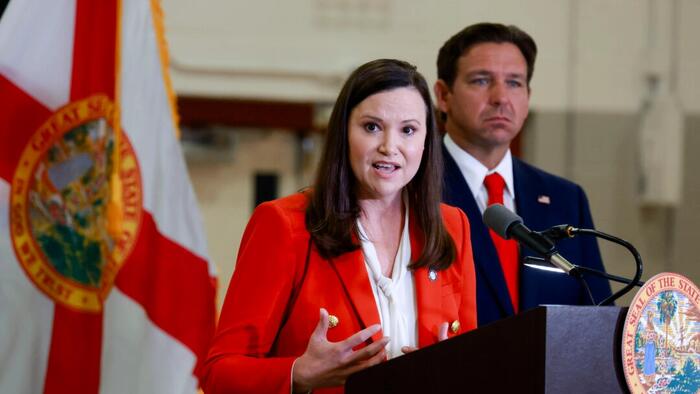On October 16, 2023, Florida officials, led by Attorney General Ashley Moody, initiated a lawsuit against the U.S. government, asserting that federal authorities are unlawfully obstructing Florida’s efforts to eliminate noncitizens from its voter rolls. The state contends that federal law mandates the government to respond to inquiries aimed at verifying the citizenship or immigration status of individuals within its jurisdiction. However, when Florida sought assistance from U.S. Citizenship and Immigration Services (USCIS) for pertinent data regarding individuals identified as potentially noncitizens, the agency’s director responded that they could only provide information from the Systematic Alien Verification for Entitlements (SAVE) program. This program, while accessible to Florida officials, reportedly lacks the comprehensiveness needed to validate the citizenship status of all individuals, as it mandates specific biographic details and an immigration identification number.
The lawsuit, lodged in a federal court in Pensacola, argues that without additional information from the Department of Homeland Security (DHS), Florida cannot effectively fulfill its responsibilities regarding the integrity of its elections and accurate maintenance of voter registration records. Florida authorities claim that this impediment inflicts damage upon the state’s sovereignty by hindering its ability to uphold election integrity. Moody, emphasizing the importance of restricting voting rights to American citizens, pointed out that under the Biden administration, there has been a considerable influx of illegal immigrants, underscoring the necessity of ensuring only citizens are represented on voter rolls.
Florida’s complaint requests the court to deem USCIS’s non-cooperation as illegal, mandated the provision of essential information, and seek reimbursement for legal costs. The suit targets both the DHS as the overseeing authority of USCIS and its secretary, Alejandro Mayorkas. While the complaint does not divulge the specific number of noncitizens flagged by Florida officials, the state has expressed willingness to provide redacted information if deemed necessary for the case’s resolution. This highlights the sensitivity surrounding the disclosure of personal data, even amidst legal proceedings.
The ramifications of the lawsuit extend beyond Florida, reflecting broader tensions between state and federal authorities concerning immigration enforcement and voter integrity. As states grapple with the complexities of verifying voter citizenship amidst growing populations of noncitizens, the question of federal cooperation remains paramount. This situation mirrors similar conflicts across the nation, as other states face challenges in ensuring their voter registration processes remain accurate and free from fraudulent registrations.
A spokesperson for DHS stated that the agency refrains from commenting on active litigation, but noted that USCIS has been engaged in dialogue with Florida officials, indicating an ongoing effort to address the state’s concerns through official communication channels. Nonetheless, the lack of transparency and the perceived inflexibility of the federal government in sharing information have heightened frustrations among state officials, prompting legal action as a means to compel cooperation.
In summary, the lawsuit filed by Florida against the federal government underscores significant legal and jurisdictional disputes over immigration and voting rights. With Attorney General Moody’s assertion that the integrity of elections is at stake, the outcome of this case could set important precedents for states’ rights in managing their voter rolls and the federal government’s obligation to assist in these efforts. As the litigation unfolds, it may reshape the landscape of voter registration practices and the relationship between state and federal agencies regarding these critical issues.

